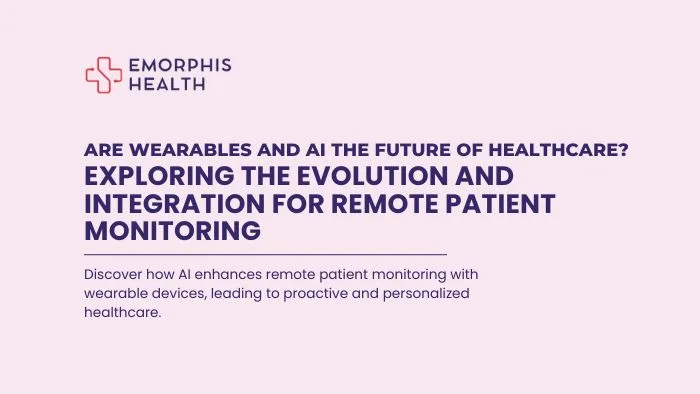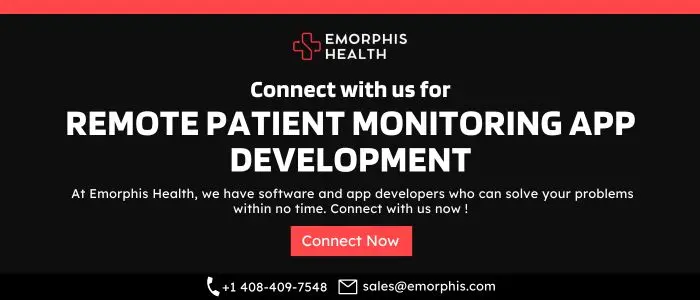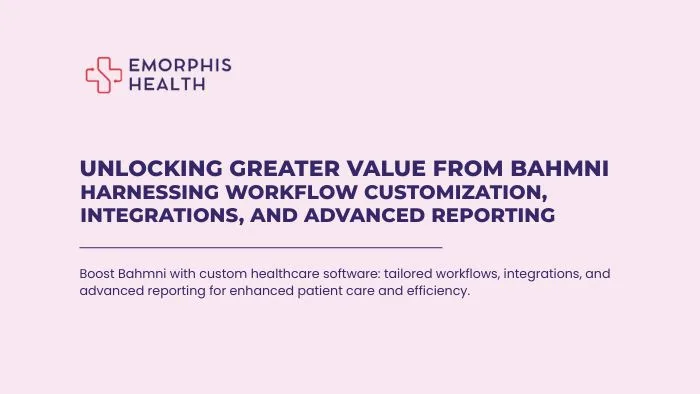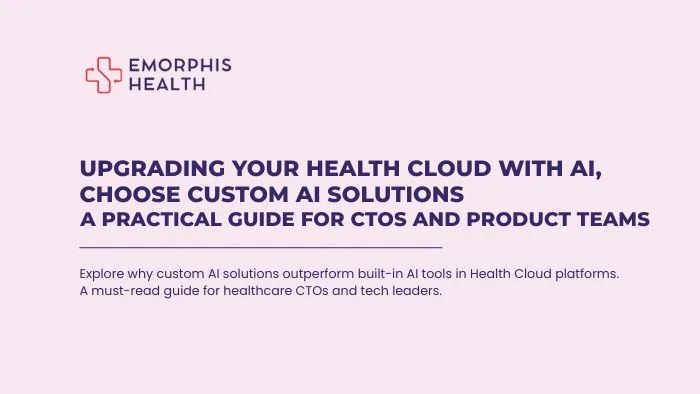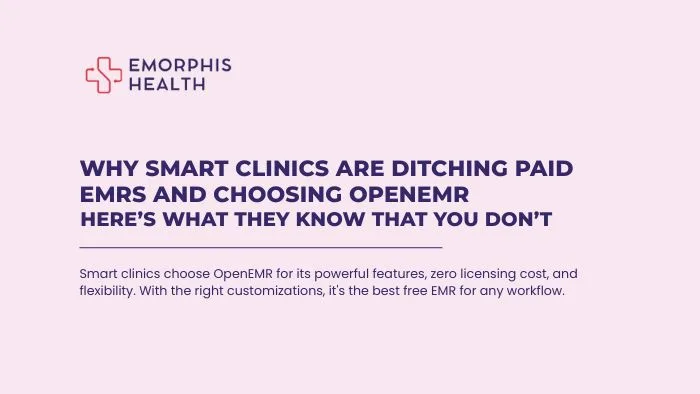Introduction
See Contents
The healthcare industry is rapidly growing, and in fact, remote patient monitoring (RPM) stands out as a transformative approach to healthcare delivery. As a matter of fact, by leveraging technology to monitor patients outside of traditional clinical settings, RPM offers numerous benefits including improved patient outcomes. Also, reduced healthcare costs, and enhanced patient engagement. At the forefront of this revolution are wearable devices and artificial intelligence (AI), two powerful technologies that are also, reshaping the way healthcare is delivered and managed.
Evolution of Wearable Technology
Early Adoption Phase (2000s – 2010s)
The journey of wearable technology in healthcare began modestly, with the emergence of basic fitness trackers and early medical-grade wearables. These devices laid the foundation for what would become a burgeoning market, offering users the ability to monitor their activity levels, heart rate, and sleep patterns. While rudimentary by today’s standards, these early wearables provided a glimpse into the potential for technology to empower individuals to take control of their health.
Maturation of Wearable Technology (2010s – Early 2020s)
As technology advanced, so too did wearable devices. With the introduction of more sophisticated sensors and capabilities, wearables evolved from simple fitness trackers to powerful health monitoring tools capable of tracking a wide range of vital signs and health metrics. Medical-grade wearables became increasingly prevalent, paving the way for their integration into remote patient monitoring programs for conditions such as diabetes, cardiovascular disease, and chronic obstructive pulmonary disease (COPD).
Current State of Wearable Technology (The mid-2020s – Present)
Today, wearable technology has reached new heights of sophistication. Modern wearables are equipped with an array of sensors capable of collecting high-quality health data in real time. From continuous glucose monitoring for diabetics to electrocardiogram (ECG) monitoring for patients with heart conditions, these devices provide valuable insights into patients’ health status, enabling early detection of health issues and more personalized interventions.
Rise of Artificial Intelligence in Healthcare
Development of AI Technologies (2010s – Early 2020s)
In parallel with the evolution of wearable technology, artificial intelligence (AI) has emerged as a powerful tool in healthcare. Advances in machine learning and deep learning have enabled AI algorithms to analyze large volumes of healthcare data and extract actionable insights. From disease diagnosis to treatment recommendation and predictive analytics, AI has the potential to revolutionize every aspect of healthcare delivery.
Applications of AI in Healthcare
The applications of AI in healthcare are vast and varied. In diagnostics, AI-powered imaging systems can detect abnormalities in medical images with greater accuracy and efficiency than human radiologists. Also, in drug discovery, AI algorithms can analyze molecular structures and predict the efficacy and safety of potential drug candidates. In personalized medicine, AI can analyze genetic and clinical data to tailor treatment plans to individual patient’s unique characteristics.
Find more details on AI in Healthcare
Regulatory Frameworks for AI in Healthcare
As AI continues to gain traction in healthcare, regulatory agencies are grappling with how best to ensure patient safety and data privacy. Frameworks for the regulation of AI in healthcare are still evolving, with issues such as algorithm transparency, bias mitigation, and ethical use of data coming to the forefront. Despite these challenges, the potential benefits of AI in healthcare are undeniable, and regulatory agencies are working to strike a balance between innovation and patient protection.
Integration of Wearables and AI
Challenges and Opportunities
While the integration of wearables and AI holds great promise for improving remote patient monitoring, it is not without its challenges. Technical challenges such as data interoperability, connectivity issues, and device compatibility must be overcome to enable seamless integration. Moreover, regulatory and privacy concerns must be addressed to ensure that patient data is handled responsibly and ethically.
The revenue generated by the Wearable Healthcare Devices market was estimated at $40.7 billion in 2023 and is anticipated to surge to $69.2 billion by 2028. In fact, this growth, with a compound annual growth rate (CAGR) of 11.2% from 2023 to 2028, is highlighted in the most recent report released by MarketsandMarkets™. Moreover, such rapid expansion underscores the significant potential of wearables in reshaping our healthcare landscape. However, it is the fusion of wearables with artificial intelligence (AI) that truly unleashes the capabilities of this technology.
Here are some key challenges and opportunities to consider.
Challenges
- Data Privacy and Security: A constant stream of personal health data flowing from wearables raises critical concerns about privacy and security. Also, robust data encryption and user control mechanisms are essential to ensure trust and adoption.
- Battery Life: Advanced AI features can drain wearables quickly. Innovations in battery technology and also energy-efficient chip design are crucial for a seamless user experience.
- Accuracy and Reliability: AI algorithms are only as good as the data they’re fed. As a matter of fact, ensuring accurate and reliable data collection from wearables is paramount for trustworthy health insights.
Find details on AI software development
Opportunities
- Personalized Health Management: AI can analyze individual data to provide tailored recommendations on diet, exercise, and also lifestyle changes. Moreover, this empowers users to take charge of their health proactively.
- Early Disease Detection: Wearables and AI can identify subtle changes in health metrics. This, in fact, helps in potentially leading to earlier detection of diseases like cardiac arrhythmias or diabetes. Early intervention can significantly improve patient outcomes.
- Improved Medication Adherence: AI-powered reminders and nudges can help patients stay on track with their medication regimens, moreover, leading to better treatment effectiveness.
The Power of Remote Patient Monitoring
One of the most promising applications of wearables and AI lies in remote patient monitoring. As a matter of fact, this technology allows healthcare providers to track a patient’s health continuously, beyond the limitations of traditional clinic visits.
According to insights from Samsung, the Vivify Pathways Home solution pairs a customized Samsung Galaxy tablet with Bluetooth-enabled biometric devices like blood pressure cuffs and glucometers. Patients use the tablet for daily health queries and biometric devices for data collection. In a clinical trial with Christus Health’s congestive heart failure patients, Vivify Pathways Home led to a remarkable 65% reduction in hospital readmissions.
How does AI enhance remote patient monitoring with wearable devices?
1. Real-time Monitoring
AI algorithms enable continuous real-time analysis of data collected by wearable devices, moreover, allowing for immediate detection of anomalies or changes in health metrics.
2. Predictive Analytics
By analyzing historical data from wearables, AI can predict potential health issues or deteriorations, also, enabling proactive interventions and preventing adverse outcomes.
3. Personalized Insights
AI algorithms can analyze individual patient data from wearables to generate personalized health insights and also, recommendations tailored to each patient’s unique needs and conditions.
4. Early Detection of Health Issues
AI-powered analytics can identify subtle changes in health metrics captured by wearables that may indicate the onset of a health issue, moreover, allowing for early intervention and treatment.
5. Risk Stratification
AI can stratify patients based on their risk profile using data from wearables, moreover, enabling healthcare providers to prioritize interventions for high-risk patients and allocate resources more effectively.
6. Remote Diagnosis and Triage
AI-powered diagnostic tools integrated with wearables can assist in remote diagnosis and triage, also, helping healthcare providers remotely assess patients’ conditions and determine the appropriate level of care.
7. Continuous Improvement
AI algorithms can learn from new data collected by wearables over time, continuously improving their accuracy and effectiveness in detecting patterns, predicting outcomes, and moreover, providing insights.
8. Integration with Electronic Health Records (EHRs)
AI can integrate data from wearables with patients’ electronic health records, also, providing healthcare providers with a comprehensive view of patients’ health status and enabling more informed decision-making.
9. Reduced Healthcare Costs
By enabling early detection of health issues, personalized interventions, and proactive management of chronic conditions. The AI-powered remote patient monitoring with wearables can help reduce healthcare costs associated with hospital admissions, also emergency room visits, and complications.
10. Improved Patient Engagement
AI-powered insights derived from wearable data can empower patients to take a more active role in managing their health, moreover, leading to improved adherence to treatment plans and better health outcomes.
The integration of artificial intelligence with wearable devices has ushered in a new era of remote patient monitoring, offering unprecedented capabilities for proactive and also, personalized healthcare. By leveraging AI-powered analytics, healthcare providers can harness the wealth of data collected by wearables to deliver timely interventions, improve patient outcomes, and ultimately transform the way healthcare is delivered. As technology continues to advance, the potential for AI-enhanced remote patient monitoring with wearables to revolutionize healthcare is limitless, promising a future where proactive and personalized care is the norm.
A Glimpse into the Future
The future of healthcare with wearables and AI is brimming with possibilities. Advancements in miniaturization will lead to even smaller, more comfortable wearables with enhanced functionalities. Integration with AI will allow them to evolve into proactive health companions, constantly monitoring our well-being and offering real-time guidance.
As AI capabilities mature, remote patient monitoring will become even more personalized and effective. Imagine a future where your wearable device not only detects an impending health issue but also connects you with a virtual healthcare assistant who can guide you through the necessary steps, or even schedule a telehealth appointment with your doctor.
The integration of wearables and AI holds immense promise for transforming healthcare. By addressing the challenges and capitalizing on the opportunities, we can pave the way for a future where proactive health management and preventative care become the norm, leading to a healthier and more empowered population.
In a recent development reported by VentureBeat.com on March 20, 2024, Neuralink unveiled a groundbreaking video showcasing a paralyzed patient utilizing the company’s brain implant to wirelessly control a computer cursor and engage in a game of chess using only the power of their mind. This innovation underscores the remarkable potential for technology to revolutionize healthcare, promising a future where individuals can seamlessly interact with devices and access medical assistance with unprecedented ease and efficiency.
— Neuralink (@neuralink) March 20, 2024
Are you ready to embark on a journey towards revolutionizing healthcare with remote patient monitoring software development?
Our team is here to guide you every step of the way for RPM Development. Whether you’re a healthcare provider looking to streamline patient care or a technology enthusiast passionate about making a meaningful impact, we’re eager to collaborate.
Let’s join forces to design innovative solutions that empower patients, enhance clinical outcomes, and shape the future of healthcare.
Get in touch with us today to start the conversation.

